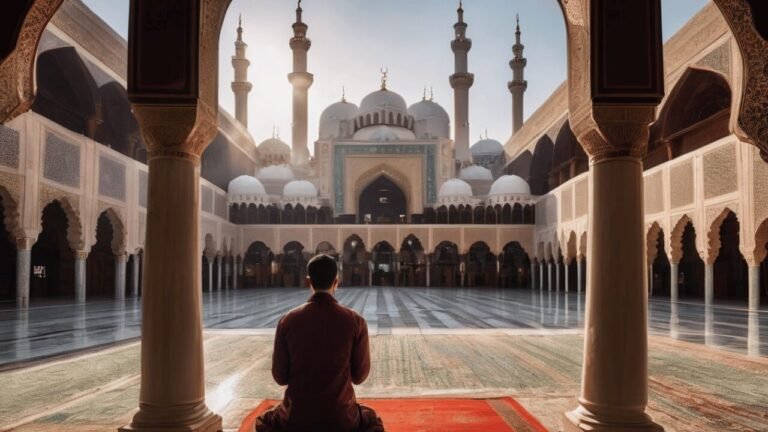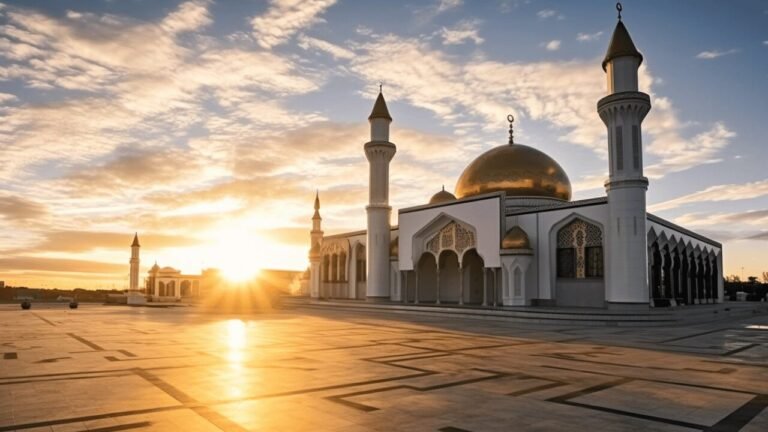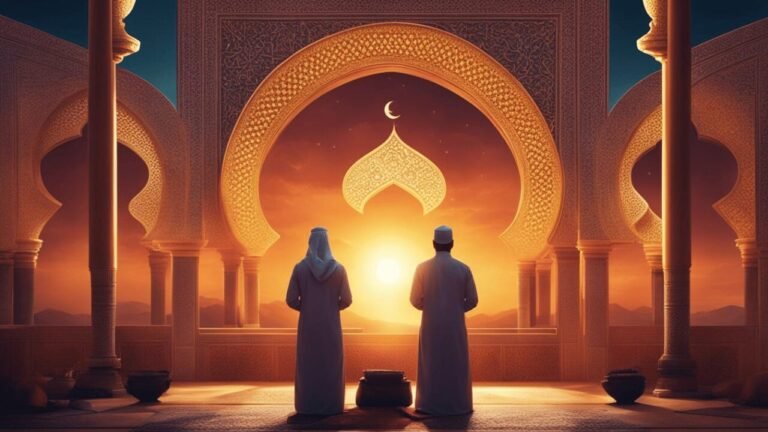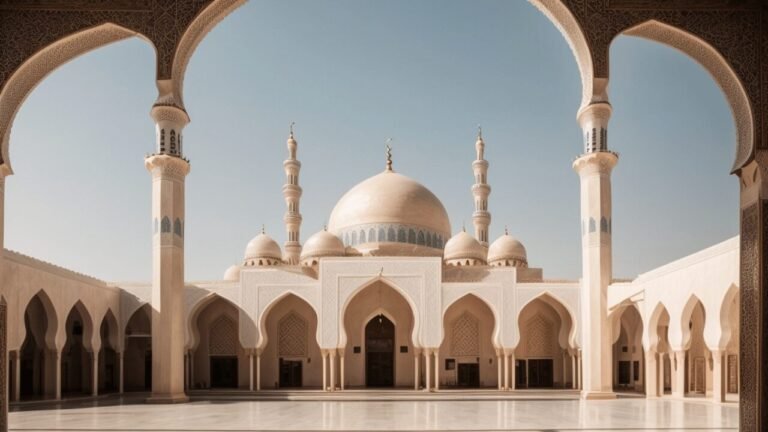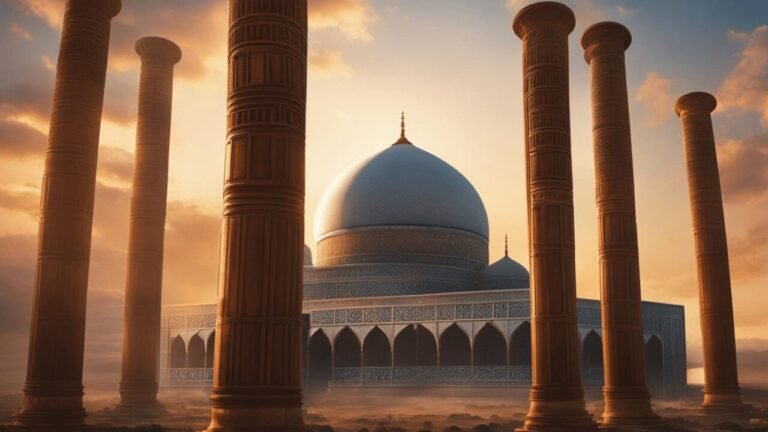Have you ever wondered what the 5 Pillars of Islam are and why they are so important to the Islamic community? This article will explore these fundamental religious practices and their significance. Learn the foundations of Islam and its impact on Muslim lives globally.
These Pillars of Islam are the practices that form the foundation of the Islamic faith. These practices were established by Prophet Muhammad and are essential to a Muslim’s religious life. They are as follows: Profession of Faith (Shahada), Prayer (Salah), Almsgiving (Zakat), Fasting during Ramadan, and Hajj – The Pilgrimage to Mecca.
Did you know the Islamic calendar is important to the Muslim community? It plays a big role in their religious celebrations and observances. The lunar calendar determines important Islamic events, such as Ramadan and Hajj. Understanding the Islamic calendar is crucial for understanding how Muslims practice their faith.
Key Takeaways:
The Five Pillars of Islam form the foundation of the Islamic faith.
These practices were established by Prophet Muhammad and are essential to a Muslim’s religious life.
They include the Profession of Faith (Shahada), Prayer (Salah), Almsgiving (Zakat), Fasting during Ramadan, and Hajj – The Pilgrimage to Mecca.
The Islamic calendar is a type of calendar that Muslims use to determine the dates of important Islamic events.
Understanding the 5 Pillars of Islam is crucial for gaining insight into the Islamic faith and its core beliefs.
Table of Contents
The First Pillar: Profession of Faith
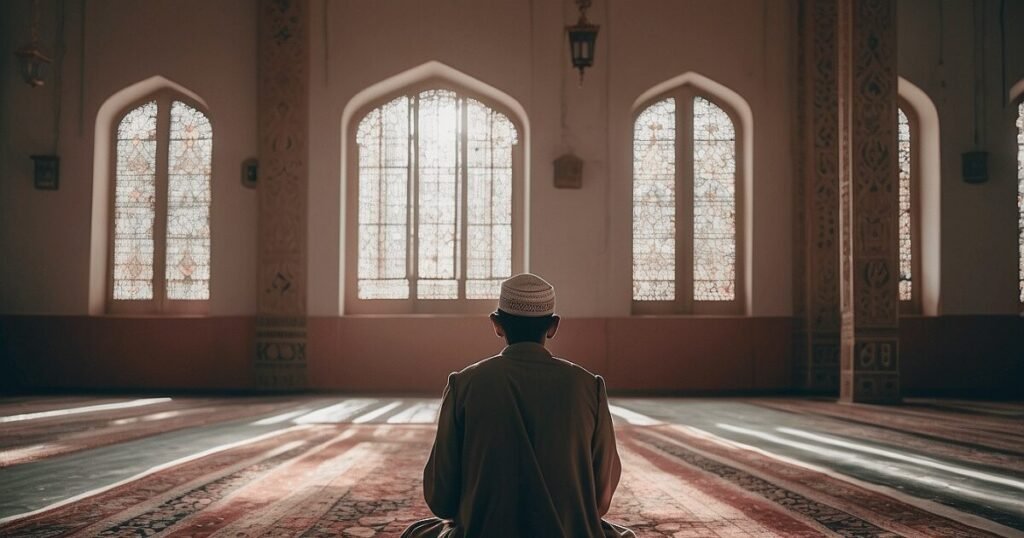
As one of the five pillars of Islam, the first pillar, also known as Shahada, is the most fundamental expression of the Islamic faith. It consists of two major beliefs: first, that there is no god but Allah, and second, that Prophet Muhammad is His messenger.
The Shahada is important to Muslims. It shows their belief in one God and Muhammad’s prophethood. To become Muslim, one must recite it aloud before witnesses. By doing so, Muslims commit to following Prophet Muhammad’s teachings and show their faith in God. It is a powerful declaration of one’s religious identity and devotion to God.
In your spiritual journey, the first pillar of Islam can serve as a reminder of the importance of faith in your religious life. Whether you are a Muslim or not, acknowledging and affirming your beliefs can help strengthen your connection with the divine and bring greater meaning to your spiritual practices. To learn more about Islam, click here.
The Second Pillar: Prayer
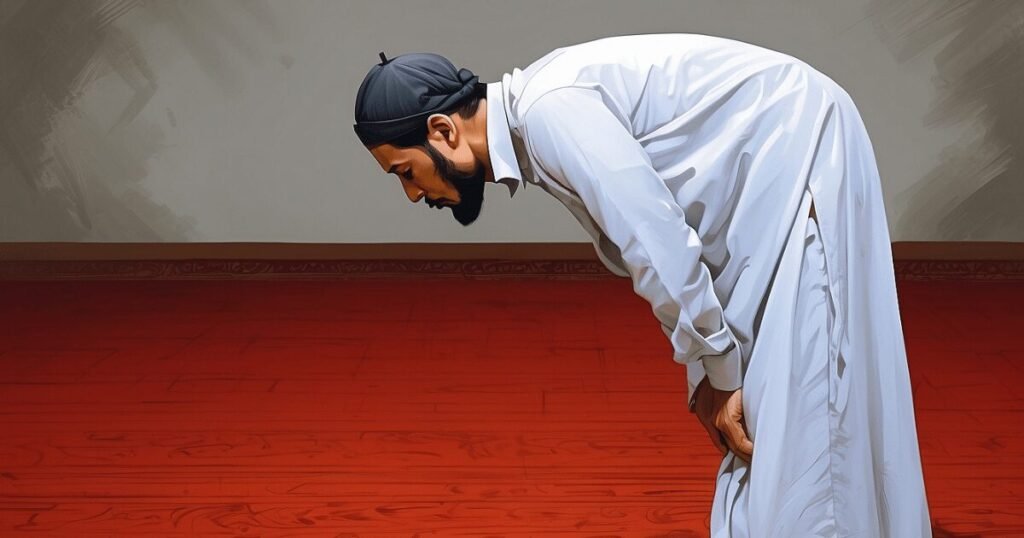
As the second pillar of Islam, daily prayer, known as Salah, is a central aspect of a Muslim’s daily life. You may wonder why prayer is so important to Muslims. Well, it’s simple: prayer provides spiritual fulfillment and helps maintain a strong connection with Allah.
The practice of praying five times a day is rooted in the Quran. These prayers are spread throughout the day to ensure a Muslim’s day is structured around religious duties. The five prayers are:
Fajr (dawn)
Dhuhr (midday)
Asr (afternoon)
Maghrib (sunset)
Isha (night)
While Muslims can pray alone, mosques serve as a place for communal worship. These buildings have a designated area for prayer known as the prayer hall. The prayer hall is often adorned with beautiful decorations, and there are separate areas for men and women to pray.
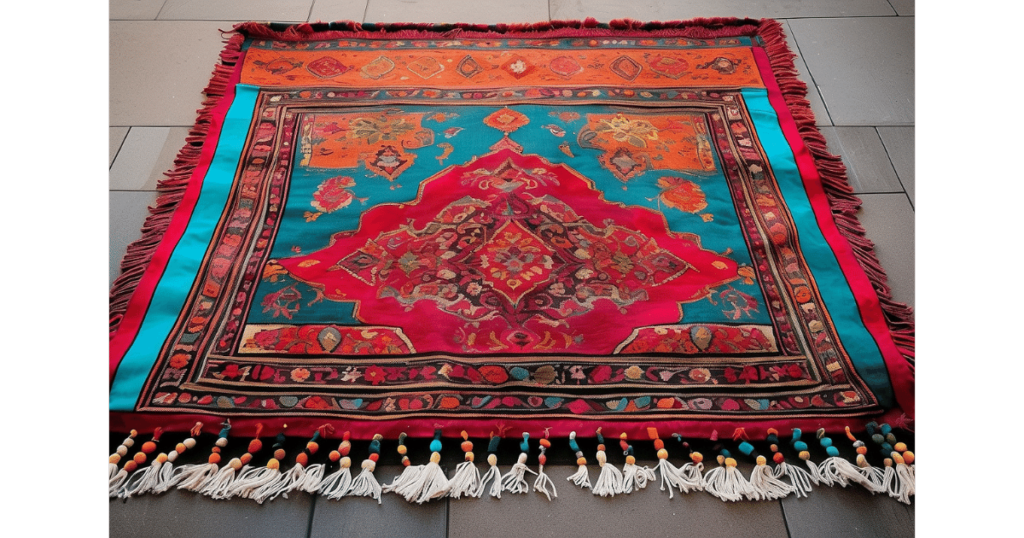
During prayer, Muslims face the Kaaba, a holy site in Mecca. While facing the Kaaba, worshippers kneel and bow their heads to the ground, symbolizing their submission to Allah. To facilitate prayer, many Muslims use a prayer rug, a small mat that can be placed anywhere to pray on.
Prayer is a religious obligation and a way of life for Muslims. It provides guidance, comfort, and a sense of community. So, if you ever visit a mosque, don’t be afraid to join in on a prayer. You may find it to be a truly spiritual experience.
The Third Pillar: Zakat
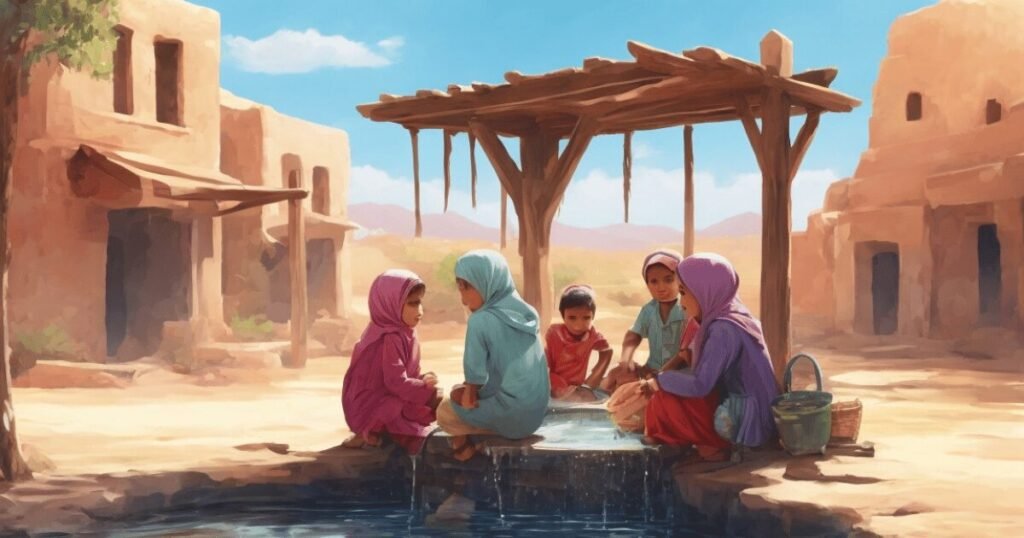
Zakat, also known as Almsgiving, is one of the Five Pillars of Islam. It is an obligatory act of giving a portion of your wealth to those in need. This act of charity is an essential practice in Islam as it helps the less fortunate community members.
Zakat can be given any time during the year, but it is usually given during the holy month of Ramadan. It is calculated as 2.5% of an individual’s wealth and is distributed to those in need. The payment of Zakat is seen as a way of purifying one’s wealth and soul and a commitment to helping those in need.
Donations made through Zakat are distributed through various channels, such as charities non-profit organizations, and directly to those in need. The impact of Zakat is highly significant, as it helps millions of people around the world each year.
“The likeness of those who spend their wealth in the way of Allah is as the likeness of a grain which grows seven ears, in every ear a hundred grains. Allah gives an increase in the manifold to whom He will. Allah is All-Embracing, All-Knowing.” – The Quran (2:261)
| Impact of Zakat | Beneficiaries |
|---|---|
| Providing food to the hungry | Low-income families |
| Providing healthcare assistance | The elderly and disabled |
| Assisting with education | Orphans and children from low-income families |
| Offering financial support | The unemployed and those living in poverty |
Zakat is not only a religious obligation but a social responsibility. By contributing to Zakat, you are helping to create a more just and equitable society. It is a way of fulfilling your duty to your fellow human beings and earning blessings from Allah.
The Fourth Pillar: Fasting During Ramadan

The fourth pillar of Islam is Ramadan, a month for spiritual reflection and self-discipline Muslims observe worldwide. Muslims follow a fast from dawn to sunset every day during Ramadan. It’s mandatory for all adults who are physically and mentally able, except for pregnant, breastfeeding, menstruating, or ill individuals.
The fast is broken daily with an evening meal called the iftar, often shared with family and friends. The pre-dawn meal is known as suhoor. Muslims fast during Ramadan by not eating or drinking during the day. This teaches self-discipline and empathy for those who have less. Fasting is also believed to help develop a stronger connection to God and increase one’s spirituality.
While fasting during Ramadan is a religious practice, it has also become a cultural tradition for many Muslim families. It is a time of year when communities come together to share meals and celebrate their faith. In the United States, Muslim communities organize community iftars and open houses to welcome non-Muslims and share their traditions.
“The month of Ramadan is the one in which the Quran was sent down as a guidance for mankind, with clear signs indicating the right way and distinguishing between right and wrong.”
Overall, fasting during Ramadan is a significant way for Muslims to deepen their faith and connect with their community. It is a time of year marked by devotion, discipline, and compassion.
The Fifth Pillar: Hajj – The Pilgrimage to Mecca
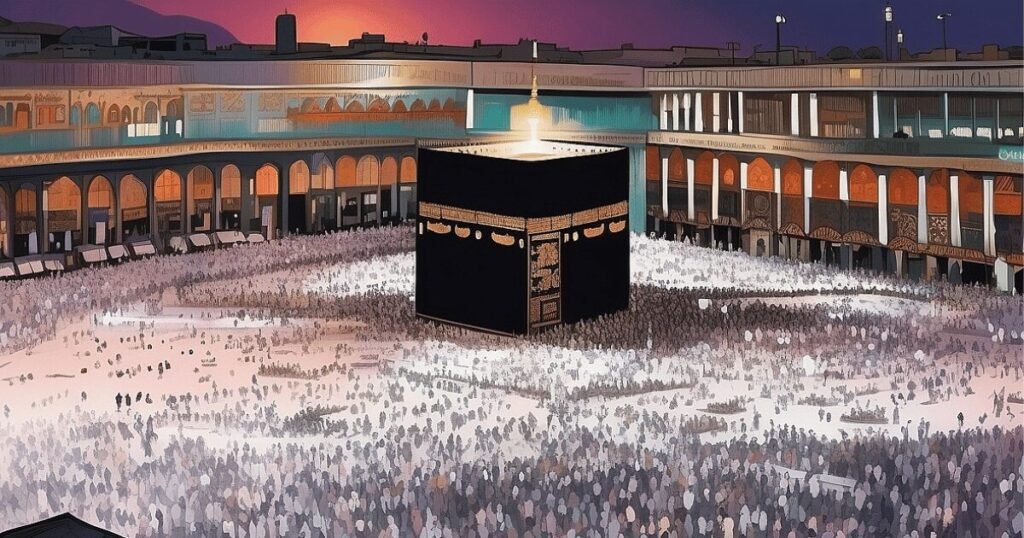
For Muslims, the fifth and final pillar of Islam is the Hajj, the pilgrimage to the holy city of Mecca. All physically and financially capable Muslims must undertake this act of worship at least once in their lifetime. Mecca is located in the western region of Saudi Arabia, considered the holiest city in Islam. Every year, millions of believers from around the world journey to Mecca, making it one of the largest annual gatherings worldwide.
The Hajj typically occurs in the last month of the Islamic calendar, known as Dhu al-Hijjah. It is a journey filled with rituals and significance, representing the struggles of Prophet Ibrahim and his family. The pilgrimage includes:
A series of rituals that occur over five to six days.
Culminating in the celebration of Eid al-Adha.
The Festival of Sacrifice.
If you are preparing for the Hajj, you should be physically and mentally prepared for the journey. This pilgrimage requires good physical health due to significant physical exertion, such as walking long distances and standing for extended periods. Being mentally prepared is important as the journey can be physically and emotionally demanding.
“In the name of Allah, O Allah! I seek your pleasure and Paradise, and I seek refuge in you from your anger and Hell.” – Dua of Hajj
During Hajj, pilgrims perform Tawaf, circling the Kaaba seven times in a counter-clockwise direction, at the Great Mosque of Mecca. They also travel to the nearby hills of Safa and Marwa, where they walk back and forth seven times in commemoration of Hajar’s search for water for her son Ismail. Other rituals include spending a day in the plain of Arafat and performing the symbolic stoning of the devil by throwing pebbles at three pillars.
The Hajj is an incredible journey that profoundly impacts those who make it. It is an opportunity to connect with other Muslims from all over the world, to share in the struggles and joys of the pilgrimage, and to draw closer to Allah. If you plan to journey to Mecca, be prepared for a life-changing experience you will never forget.
Conclusion: The 5 Pillars of Islam
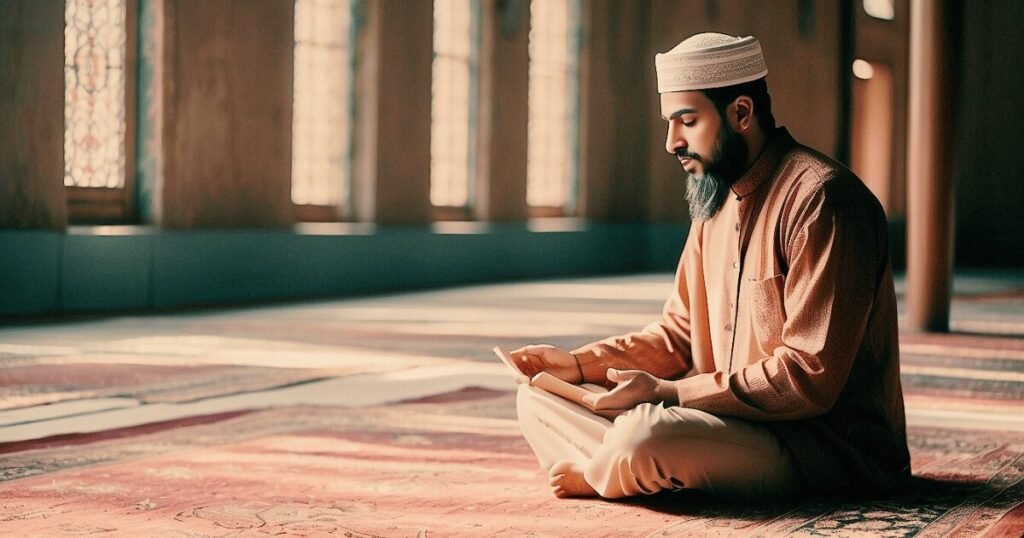
Now that you have a comprehensive understanding of the 5 Pillars of Islam, you can appreciate the significance they hold in the lives of Muslims. These practices offer structure and guidance for individuals to connect with their faith and community.
The Importance of Knowledge and Understanding
By learning about these pillars, you have taken an important step in gaining insight into the Islamic faith. This understanding can promote respect and appreciation of diversity, which is crucial in our increasingly interconnected world.
Applying Lessons to Your Own Life
While the 5 Pillars of Islam are specific to the Islamic faith, some lessons can be applied to your own life. Regular prayer, giving to those in need, and fasting for spiritual growth are important practices that can benefit individuals of all backgrounds.
Continuing Your Exploration
If you are interested in further exploring the Islamic faith, consider attending a local mosque or Islamic center or speaking with Muslim individuals in your community. This ongoing education can foster mutual understanding and appreciation for diversity.
Thank you for taking the time to learn about the 5 Pillars of Islam. Your curiosity and open-mindedness are valuable assets in our diverse world.
FAQ
What are the 5 Pillars of Islam?
The 5 Pillars of Islam are the fundamental religious practices that guide the lives of Muslims.
Who established the 5 Pillars of Islam?
The 5 Pillars of Islam were established by Prophet Muhammad.
What is the importance of the Islamic calendar?
The Islamic calendar plays a significant role in religious observances and determining important dates and events within the Islamic community.
How do American Muslims embrace the first pillar?
American Muslims embrace the first pillar by affirming their belief in one God and the prophethood of Muhammad.
How many times a day do Muslims pray?
Muslims pray five times a day as part of their religious practice.
What is the role of the mosque in prayer?
The mosque serves as a place of communal worship and gathering for Muslims during prayer.
What is the purpose of Zakat?
Zakat involves giving a portion of one’s wealth to those in need and supporting charitable organizations.
How long do Muslims fast during Ramadan?
Muslims observe fast during Ramadan from dawn to sunset, refraining from consuming food or drink.
Why is the Hajj significant?
The Hajj holds great historical and spiritual significance for Muslims and is an obligatory worship act for believers.


